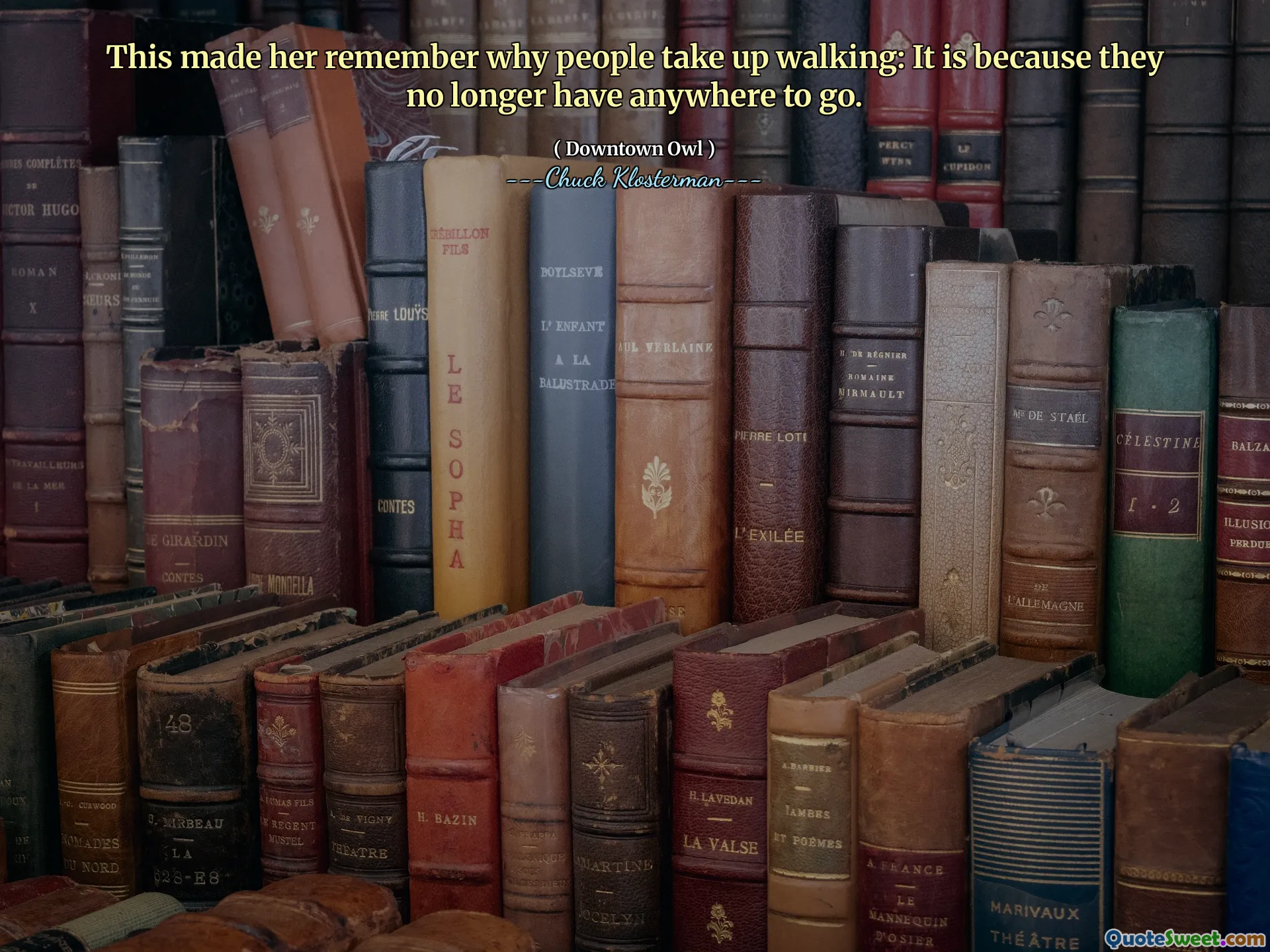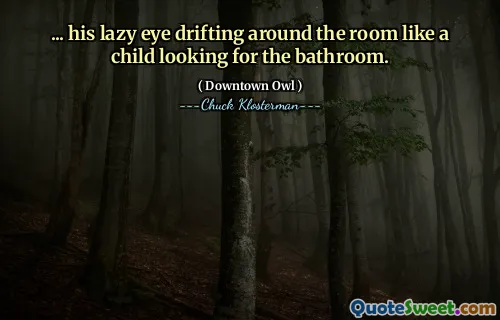
This made her remember why people take up walking: It is because they no longer have anywhere to go.
This quote encapsulates a profound truth about the human condition and the nature of purpose. Walking, often seen as a simple physical activity, can serve as a metaphor for life's journey or lack thereof. When individuals find themselves devoid of direction or destination, the act of walking becomes not just a means of transportation but a reflection of their internal state. It highlights how progress or a sense of purpose can be intertwined with physical movement. In a world where people are constantly busy and goal-driven, walking in circles or aimlessly through a neighborhood might symbolize a retreat from the chaos or an acknowledgment of existential inertia. The act of no longer having somewhere to go indicates a shift from striving and ambition to introspection, resignation, or perhaps a search for solace in the mundane. Sometimes, the absence of destination points to a deeper sense of loss—a loss of purpose, hope, or identity. Conversely, walking without a destination might also be a conscious choice to find clarity, peace, or understanding in the simplicity of motion. It makes us consider how the external environment reflects our internal landscape, and how movement—psychological or physical—is often driven by whether we have a meaningful path ahead. The quote resonates with the human tendency to seek purpose and the possible emptiness that can accompany its absence. It invites reflection on modern life's paradoxes—how relentlessly pursuing success can sometimes leave us feeling stranded, and how moments of aimlessness might in fact be a necessary pause for renewal and self-discovery.
(Downtown Owl) by Chuck Klosterman reminds us that life’s mundane acts often hold deeper philosophical significance, revealing the true nature of our aspirations and despair.







